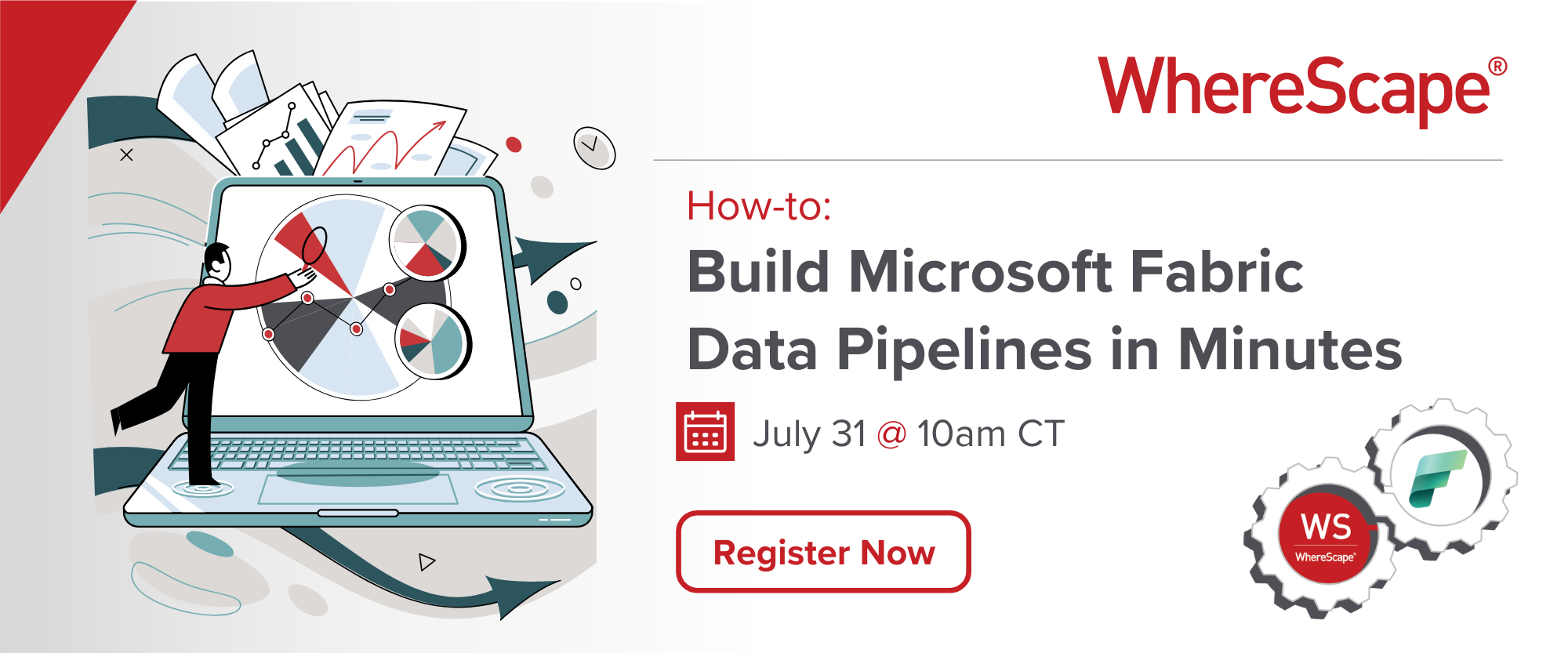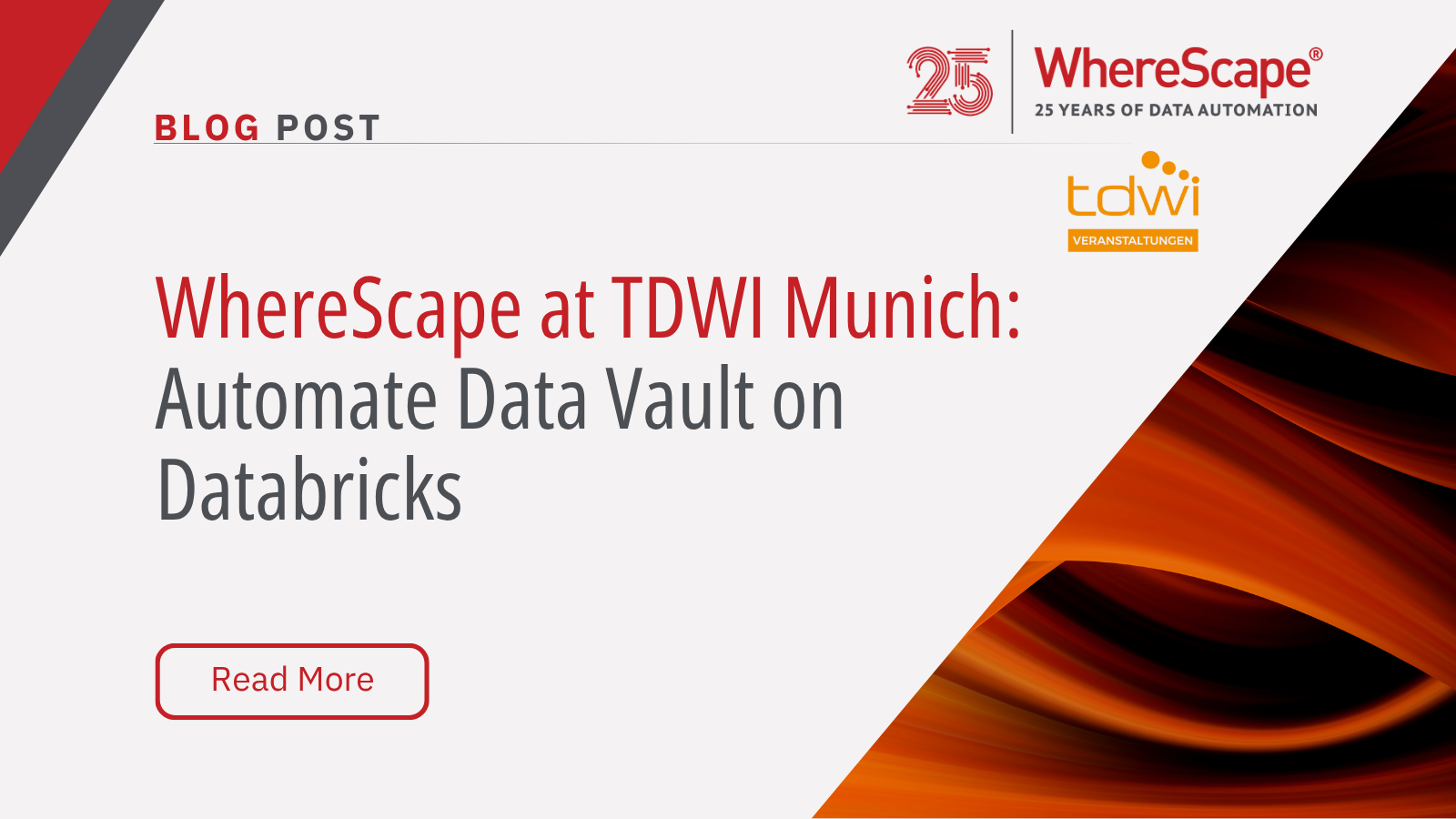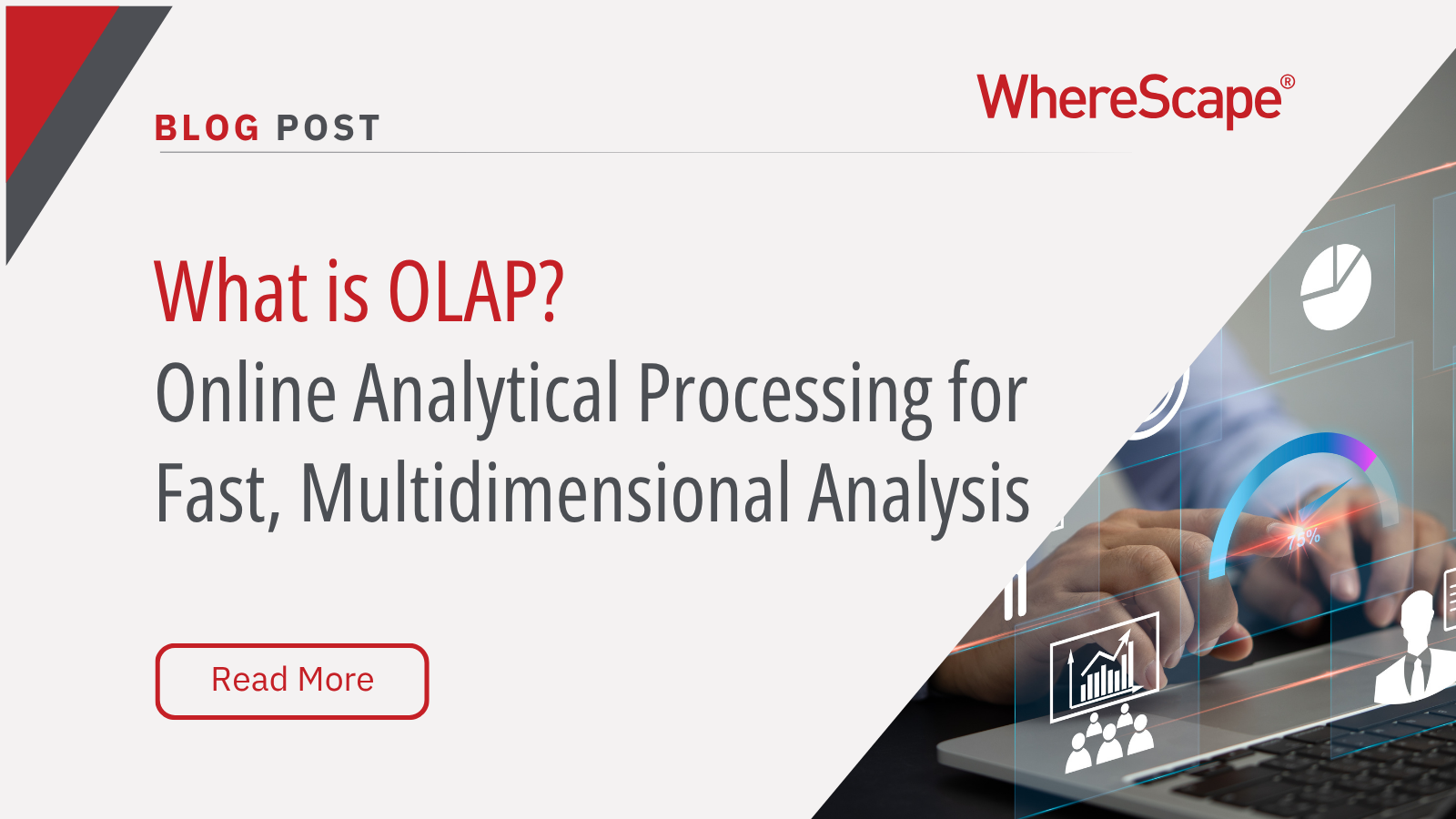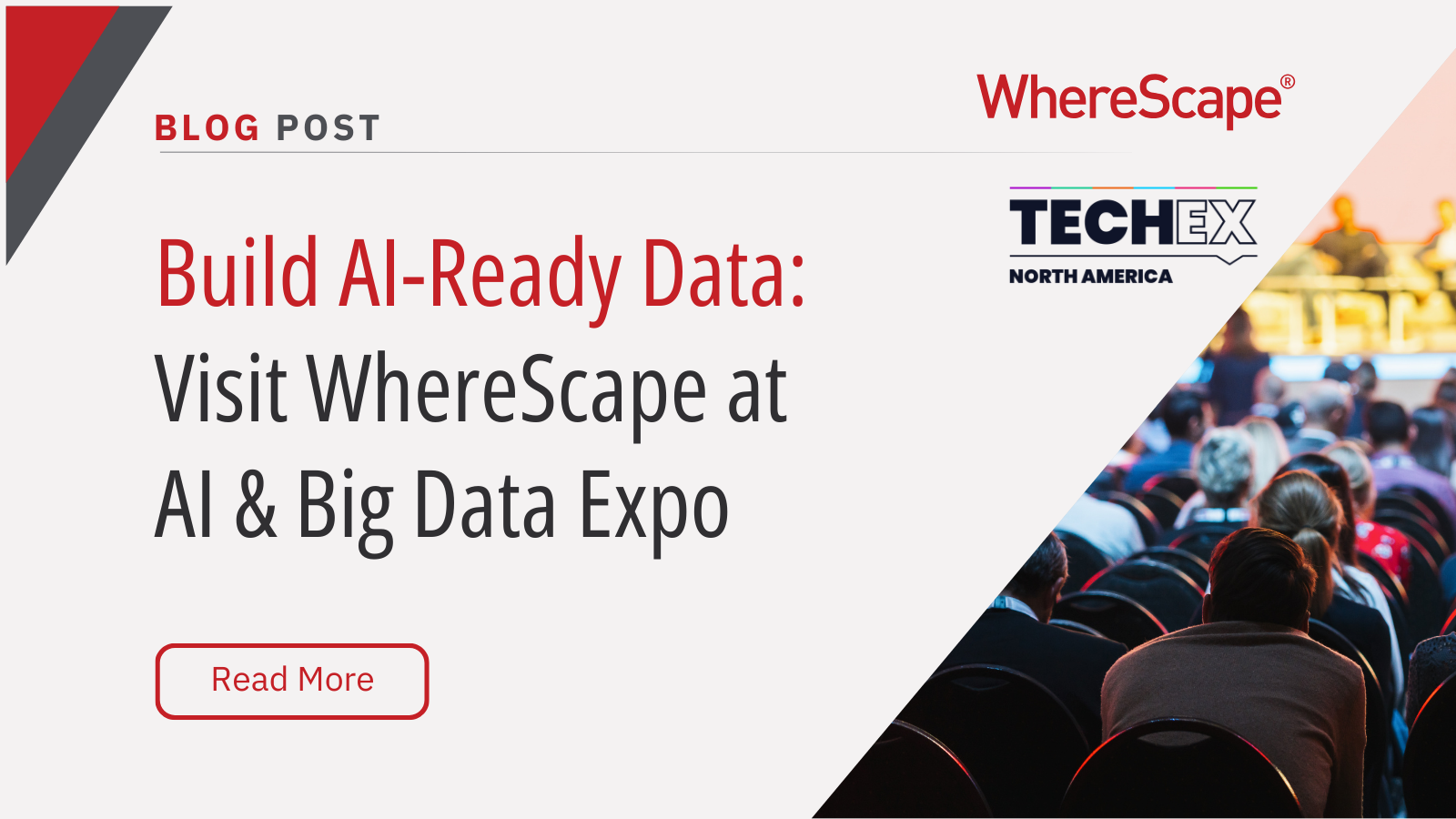Join our fast-and-friendly virtual tour to...
5 Advantages of Automated In-Memory Data Warehousing from WhereScape and EXASOL
The combination of WhereScape RED data automation technology and EXASOL’s in-memory analytic database gives developers a plethora of new data modelling capabilities. Here are five ways your team can use this combination to transform the way they work with data.
- Intuitive drag-and-drop modelling
The partnership allows you to build a malleable data warehouse on EXASOL via an intuitive drag-and-drop GUI that automates the actions you commit. This allows complex data ecosystems to be built in a fraction of the time compared to hand-coding, and without the inevitable human error. Teams can commit fewer resources yet achieve the insight they are looking for faster. Plus, you never need to write documentation again!
- Faster ELT
WhereScape RED either complements your existing ETL processes and speeds it up, or replaces them with a highly scalable ELT architecture that leverages the power of EXASOL and performs the transformation process using the power of the database. You can use this to quickly build native EXASOL objects and even an entire semantic layer.
- Orchestration made simple
WhereScape RED for EXASOL does not add another new product into your already complex web of data creating, sharing or analysis technology. Instead it ensures your existing data sources, targets and BI tools feed in and out of EXASOL as quickly as possible without the need for manual handoffs. WhereScape RED is essentially an integrated development environment, enabling you to unravel the complexity that slows you down.
- New features
As RED commits changes made in its GUI, it simultaneously creates standardized documentation for them, creating a full audit trail. This means new EXASOL features can be seamlessly integrated as soon as they are available, without a need for work-around solutions to be hand-coded.
- Value for money
Data automation allows teams to do more with less budget. This is useful for a company of any size of course, but it allows smaller teams to build structures that previously lay outside their scope. The reduced resources required means more time to work on other initiatives, or as in the case of many companies we have worked with, less money spent on outsourcing.
Partner Focus
Since 2008, EXASOL has led the Transaction Processing Performance Council’s TPC-H benchmark for analytical scenarios, in all data volume-based categories 100 GB, 300 GB, 1 TB, 3 TB, 10 TB, 30 TB and 100 TB.
EXASOL holds the top position in absolute performance as well as price/performance. It is a parallelized relational database management system (RDBMS) which runs on a cluster of standard computer hardware servers. Following the SPMD model, the identical code is executed on each node simultaneously. The data is stored in a column-oriented way and proprietary in-memory compression methods are used. Given its self-optimizing and tuning-free features, the database gives you more time to focus on analytics and insights, not administration.
EXASOL Xperience Berlin
We are delighted to sponsor EXASOL Xperience in Berlin on July 3-5, and see this as an ideal time to showcase what our new integration can do. Come and visit the WhereScape team for a demo. We hope to see you there.
WhereScape at TDWI Munich: Automate Data Vault on Databricks
WhereScape at TDWI Munich 2025: Automate a Full Data Vault on Databricks in Just 45 Minutes June 24–26, 2025 | MOC Munich, Germany As data complexity grows and business demands accelerate, scalable and governed data architectures are no longer optional—they're...
What Is OLAP? Online Analytical Processing for Fast, Multidimensional Analysis
Streamline your data analysis process with OLAP for better business intelligence. Explore the advantages of Online Analytical Processing (OLAP) now! Do you find it challenging to analyze large volumes of data swiftly? A Forrester study reveals that data teams spend...
Build AI-Ready Data: Visit WhereScape at AI & Big Data Expo
June 4–5, 2025 | Booth 202 | Santa Clara Convention Center As organizations scale their artificial intelligence and analytics capabilities, the demand for timely, accurate, governed, and AI-ready data has become a strategic priority. According to Gartner, through...
Automating Star Schemas in Microsoft Fabric: A Webinar Recap
From Data Discovery to Deployment—All in One Workflow According to Gartner, data professionals dedicate more than half of their time, 56%, to operational tasks, leaving only 22% for strategic work that drives innovation. This imbalance is especially apparent when...
What is a Data Model? How Structured Data Drives AI Success
What is a data model? According to the 2020 State of Data Science report by Anaconda, data scientists spend about 45% of their time on data preparation tasks, including cleaning and loading data. Without well-structured data, even the most advanced AI systems can...
ETL vs ELT: What are the Differences?
In working with hundreds of data teams through WhereScape’s automation platform, we’ve seen this debate evolve as businesses modernize their infrastructure. Each method, ETL vs ELT, offers a unique pathway for transferring raw data into a warehouse, where it can be...
Dimensional Modeling for Machine Learning
Kimball’s dimensional modeling continues to play a critical role in machine learning and data science outcomes, as outlined in the Kimball Group’s 10 Essential Rules of Dimensional Modeling, a framework still widely applied in modern data workflows. In a recent...
Automating Data Vault in Databricks | WhereScape Recap
Automating Data Vault in Databricks can reduce time-to-value by up to 70%—and that’s why we hosted a recent WhereScape webinar to show exactly how. At WhereScape, modern data teams shouldn't have to choose between agility and governance. That's why we hosted a live...
WhereScape Recap: Highlights From Big Data & AI World London 2025
Big Data & AI World London 2025 brought together thousands of data and AI professionals at ExCeL London—and WhereScape was right in the middle of the action. With automation taking center stage across the industry, it was no surprise that our booth and sessions...
Why WhereScape is the Leading Solution for Healthcare Data Automation
Optimizing Healthcare Data Management with Automation Healthcare organizations manage vast amounts of medical data across EHR systems, billing platforms, clinical research, and operational analytics. However, healthcare data integration remains a challenge due to...
Related Content
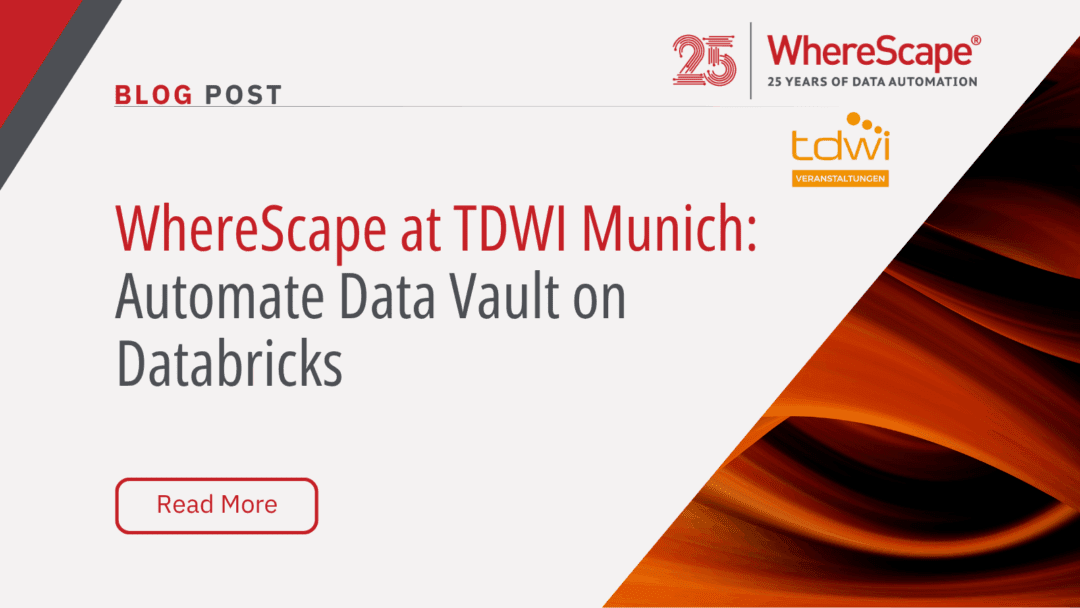
WhereScape at TDWI Munich: Automate Data Vault on Databricks
WhereScape at TDWI Munich 2025: Automate a Full Data Vault on Databricks in Just 45 Minutes June 24–26, 2025 | MOC Munich, Germany As data complexity grows and business demands accelerate, scalable and governed data architectures are no longer optional—they're...
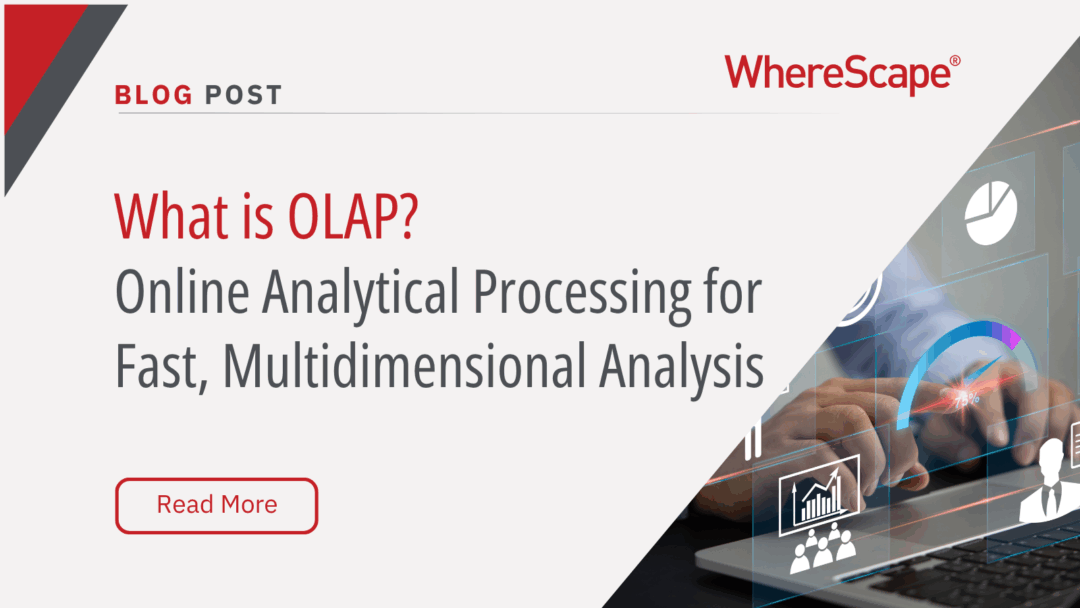
What Is OLAP? Online Analytical Processing for Fast, Multidimensional Analysis
Streamline your data analysis process with OLAP for better business intelligence. Explore the advantages of Online Analytical Processing (OLAP) now! Do you find it challenging to analyze large volumes of data swiftly? A Forrester study reveals that data teams spend...
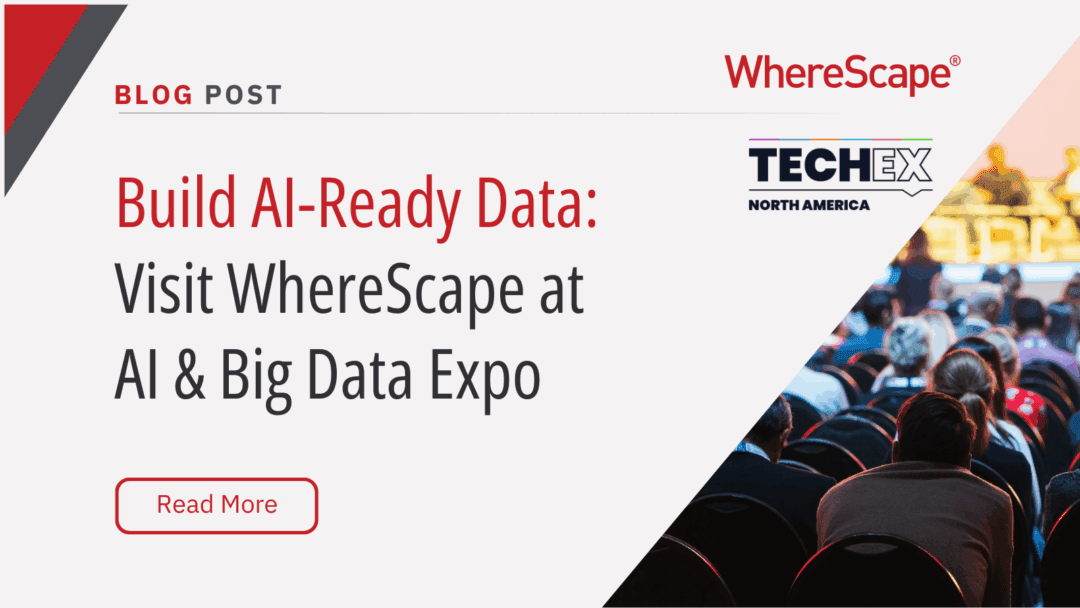
Build AI-Ready Data: Visit WhereScape at AI & Big Data Expo
June 4–5, 2025 | Booth 202 | Santa Clara Convention Center As organizations scale their artificial intelligence and analytics capabilities, the demand for timely, accurate, governed, and AI-ready data has become a strategic priority. According to Gartner, through...
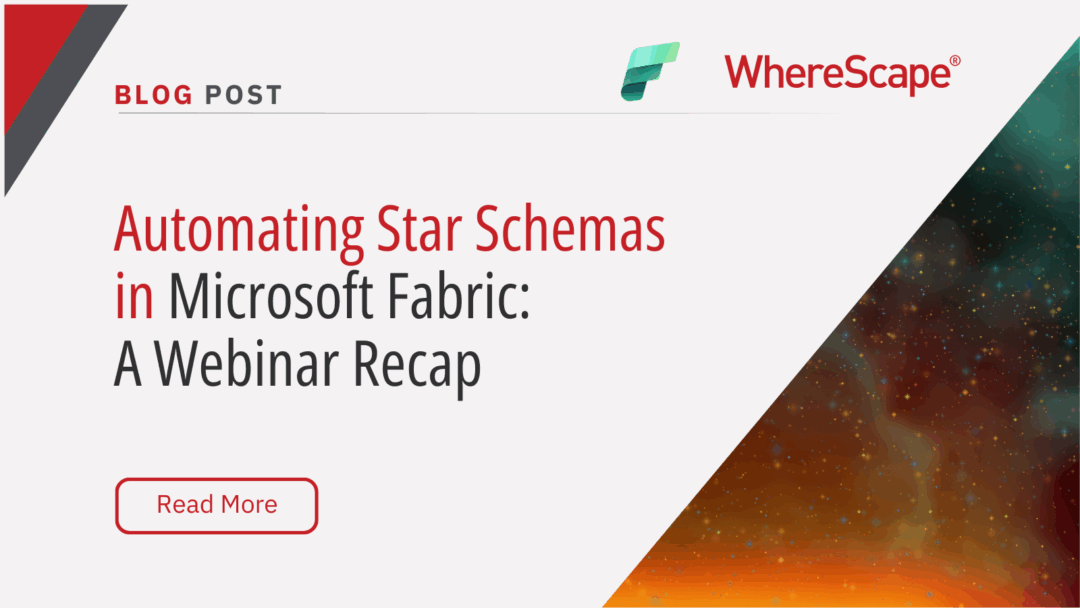
Automating Star Schemas in Microsoft Fabric: A Webinar Recap
From Data Discovery to Deployment—All in One Workflow According to Gartner, data professionals dedicate more than half of their time, 56%, to operational tasks, leaving only 22% for strategic work that drives innovation. This imbalance is especially apparent when...

